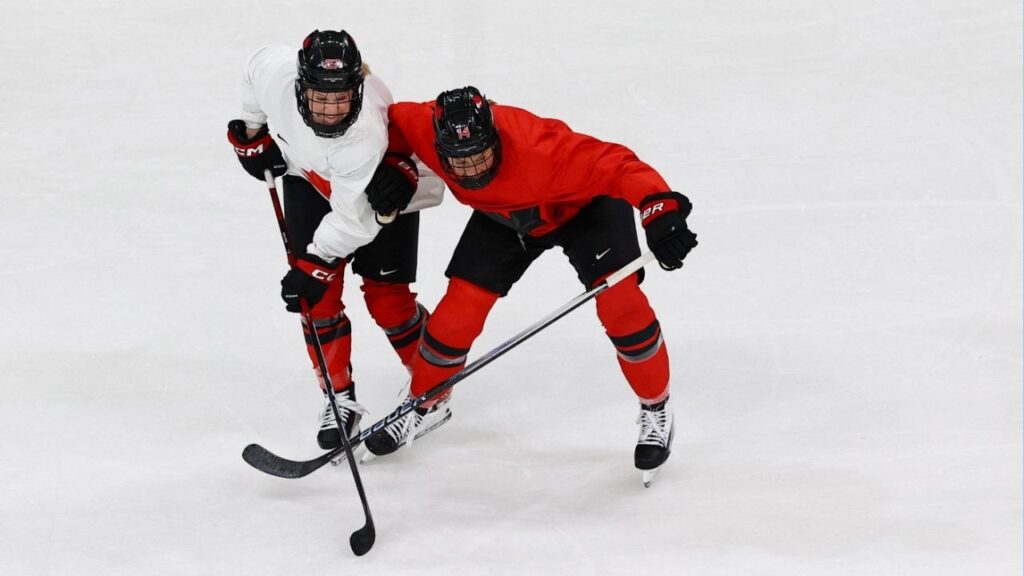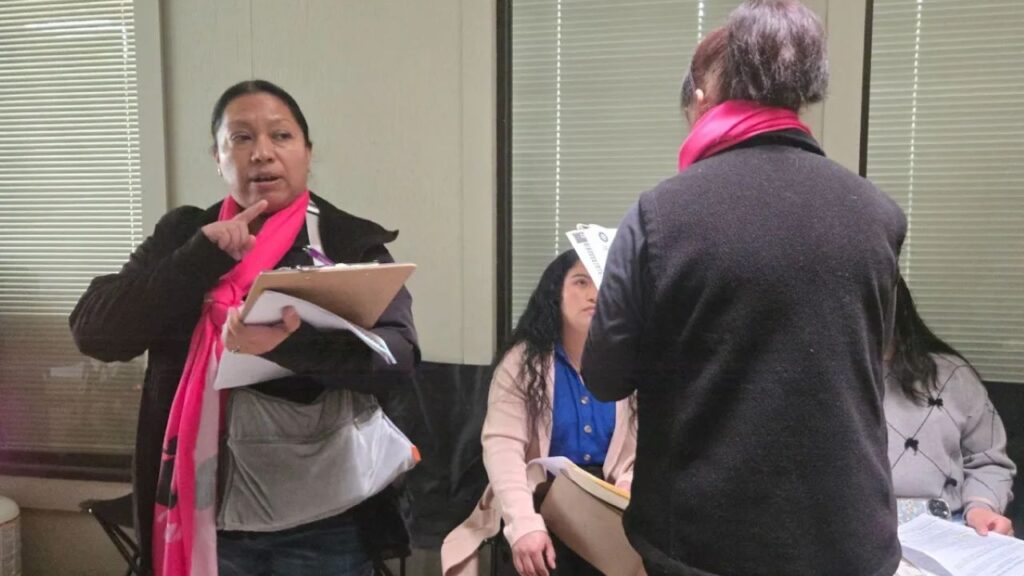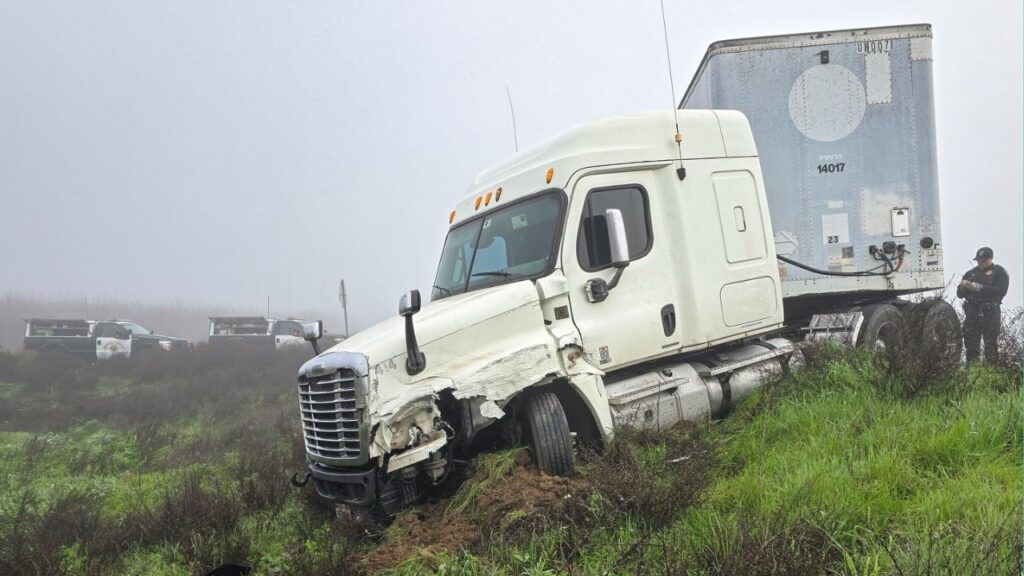Apartments damaged by falling missile debris, injury several people, in Kursk, Russia, on Tuesday, Aug. 13, 2024. Ukraine pressed ahead with its assault inside Russian territory on Tuesday, a week into the biggest foreign incursion into the country since World War II. (Nanna Heitmann/The New York Times)

- Ukraine advances into Russian territory, forcing Russia to withdraw troops from Ukraine.
- Russia deploys less combat-ready units to counter Ukraine's offensive.
- Ukraine's progress slows as Russian reinforcements increase resistance.
Share
|
Getting your Trinity Audio player ready...
|
KYIV, Ukraine — Since its surprise incursion into Russia more than a week ago, Ukraine has steadily gained ground, saying it advanced even deeper into Russian territory Wednesday. It says it has captured hundreds of soldiers, as Russia has evacuated more than 130,000 people from nearby communities and declared a new state of emergency in one region.
And now Moscow has begun withdrawing some troops from Ukraine in an effort to repel Ukraine’s offensive into western Russia, according to U.S. and Ukrainian officials, an indication that the surprise attack is forcing Moscow to change its battle plans in Ukraine.
Russia on the Defense
Taken collectively, Ukraine has deftly put Russia on the defensive, creating a new, if small, front line in a war where Moscow has long had the upper hand. If Russia brings reinforcements in large numbers from other parts of the front, it could provide some relief to Ukrainian troops who are struggling to push back relentless Russian attacks, particularly in eastern Ukraine.
Related Story: Ukraine Says It Has Taken More Ground and Prisoners During Its Advance Into ...
It is an edge that Ukraine appears intent on keeping, as it eyes, for now, holding the Russian territory it controls. Ukrainian President Volodymyr Zelenskyy discussed on Wednesday the possibility of establishing military administrations in areas seized by Ukrainian troops. The country’s interior minister, Ihor Klymenko, said Ukraine was creating a “buffer zone” in western Russia to protect border towns and villages. But it’s an advantage that may not translate into broader gains elsewhere — and one that may be hard to maintain.
Military analysts say Russia has so far responded by sending units that were not fighting in hot spots on the front, making it unclear whether Ukraine’s gambit would have the effect it desired on the overall battlefield. Russia has been careful not to pull troops out of eastern Ukraine, where its army has been steadily advancing in recent months.
As the incursion onto Russian soil enters its second week, the Ukrainian military will also face its own challenges, the analysts say. Capturing more land will become harder as Russian reinforcements arrive, while holding on to captured territory will expose stationary Ukrainian positions to potentially devastating airstrikes.
The Russian troop movements were reported by Dmytro Lykhovii, a spokesperson for the Ukrainian army, who told Ukrainian news media Tuesday that Russia had moved some units from the southern Ukrainian regions of Zaporizhzhia and Dnipro to other areas of the fighting, including the Kursk region.
Related Story: Ukraine’s Foray Into Russia’s Border Region Embarrasses Putin. How ...
Russia Pulled Troops From Ukraine
A U.S. official, speaking on the condition of anonymity to discuss sensitive security matters, also said Russia had pulled out small numbers of troops from Ukraine, but he did not specify their location or the number of soldiers involved.
There is little sign that Moscow has redeployed troops from the Donetsk region of eastern Ukraine, which Moscow hopes to fully capture and where it has been on the offensive for months. Instead, the Russian army appears to have sent in reinforcements drawn mainly from less combat-ready units based in northern Russia and Ukraine, military experts say.
“The Russian strategy is to avoid drawing from units in the Donetsk direction as much as possible,” said Serhii Kuzan, the chair of the Ukrainian Security and Cooperation Center, an independent research group. “The Russians are reluctant to do this because it would jeopardize all the gains of their summer offensive campaign.”
The Institute for the Study of War, a Washington-based organization, said Russian authorities “appear to be largely relying on Russian conscripts, and elements of some regular and irregular military units pulled from less critical sectors of the front line to address the ongoing Ukrainian incursion.”
Related Story: Ukraine’s Foray Into Russia’s Border Region Embarrasses Putin. How ...
Lithuania’s defense minister, Laurynas Kasciunas, said Tuesday that Russia was moving troops from its Baltic enclave of Kaliningrad to Kursk. Kasciunas was visiting Zelenskyy in Kyiv.
Ukrainian military officials said that Russian assaults in the Donetsk region had continued unabated over the past week, despite the new Ukrainian offensive. Russian troops have continued to slowly advance in or toward the front-line towns of Chasiv Yar, Niu York, Pokrovsk and Toretsk, they say.
Oleksandr Bordiian, a spokesperson for the 32nd Separate Mechanized Brigade, which is fighting near Toretsk, told the Ukrainian news media Tuesday that Ukraine’s attacks in the Kursk region “have not yet had any impact on the density of assaults and shelling in our direction.” A medic fighting in another brigade near Toretsk also said Wednesday that there had been no changes on that part of the front.
Ukraine’s Troops Advanced Over a Mile into Kursk Region
On Wednesday, Gen. Oleksandr Syrsky, Ukraine’s top commander, told Zelenskyy that Ukrainian troops had advanced up to 2 kilometers (about 1.2 miles) in the Kursk region since the beginning of the day. He also said that more than 100 Russian soldiers had been captured during the day. His claims could not be independently verified.
Related Story: Ukraine Says It Has Taken More Ground and Prisoners During Its Advance Into ...
Military analysts say Ukraine will need to expand or hold onto its gains in western Russia long enough to compel Moscow to divert significant forces from the battlefield in Ukraine.
After quick successes in the early days of the offensive, Ukraine’s advance in the Kursk region appears to have slowed, according to maps of the battlefield compiled by independent analysts. Ukrainian troops are now attacking to the north and south of the bulge they have carved out in Russian territory, but are facing more Russian resistance, the maps show.
The Ukrainian raids appear to have a strategy of probing and destabilizing Russian defenses. After several days of Ukrainian attacks on the Belgorod region, which borders Kursk, the regional governor, Vyacheslav Gladkov, declared a state of emergency Wednesday.
Whether Ukraine can continue to conduct these raids depends on the number of troops it can commit to the fight. Its forces are stretched thin, and Ukraine has already sent experienced units, pulled from the front in eastern Ukraine, into the offensive.
–
This article originally appeared in The New York Times.
By Constant Méheut/Nanna Heitmann
c.2024 The New York Times Company



















